The OFAC 50% Rule is a guideline used by the Office of Foreign Assets Control (OFAC) of the US Department of Treasury to determine whether a foreign company is owned or controlled by a blocked person or entity.
According to the rule, if a person on the OFAC’s blocked list owns more than 50% of a foreign company, that company is considered to be owned or controlled by that person and is also blocked. This means the company is not allowed to do business with US companies or individuals.
The OFAC 50% rule is used to identify companies that may be subject to sanctions or other restrictions under the government’s regulations. Therefore, businesses need to understand this rule to avoid doing business with blocked companies and as a result, find themselves in breach with the above rule.
Does your business need to comply with OFAC 50% rule?
Businesses need to understand the OFAC 50% Rule because compliance with OFAC regulations is mandatory for many jurisdictions in accordance with their national law. Failure to comply can result in significant fines and penalties. In addition, businesses engaging in international trade or having operations in foreign jurisdictions may have a higher risk of conducting transactions with a sanctioned person or entity or a person or entity owned or controlled by а sanctioned person or entity.
Businesses must take proactive steps to eliminate their risk of non-compliance with OFAC sanctions. This includes regularly screening their clientele and monitoring their customers’ transactions.
How to determine whether a company is owned by a blocked person or entity
To determine whether a foreign company is owned or controlled by a blocked person or entity, it is necessary to look at the ownership structure of a client, i.e., a company. This includes examining the company’s voting shares and the right of a person or entity to set the company’s management and policies or the person that owns more than 50% of the company directly or indirectly.
If it is determined that a blocked person or entity does own more than 50% of the company, then under OFAC, the foreign company is considered to be owned or controlled by a blocked person or entity and is subject to sanctions or other restrictions under OFAC’s regulations. These sanctions or restrictions include blocking assets or the imposition of penalties for transactions with the company.
How to comply with OFAC’s 50% rule
There are several steps that businesses can take to ensure compliance with the OFAC 50% Rule:
- Implement a robust compliance program: Develop and implement a Sanctions compliance program that includes due diligence procedures for identifying and managing risks associated with the OFAC 50% Rule. This consists of procedures for screening customers, suppliers, partners, and other third parties against OFAC’s list of blocked persons or entities.
- Conduct regular risk assessments: Regularly assess the risks associated with the OFAC 50% Rule and update the compliance program accordingly. This can include reviewing the ownership structure of key customers, suppliers, partners, and other third parties.
- Train employees: Train employees on OFAC regulations, including the OFAC 50% Rule and the compliance program to ensure that they understand the risks and how to identify and manage them.
- Monitor transactions: Monitor transactions and business relationships to ensure compliance with OFAC regulations, including the OFAC 50% Rule. This can include conducting regular audits of transactions and maintaining records of due diligence procedures.
It is important to note that the OFAC 50% Rule is a guideline and not a strict rule. OFAC may use other factors to determine whether a foreign company is owned or controlled by a blocked person or entity.
If you have any doubts or questions about OFAC regulations, including the OFAC 50% Rule, it is recommended to seek legal advice. This can help ensure compliance with the rule and avoid potential penalties and fines.



